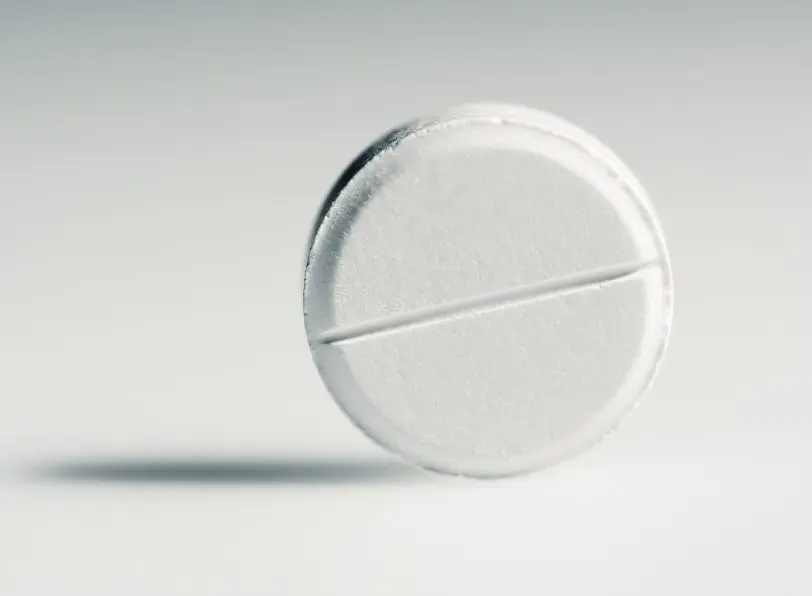Contents
A hangover is the result of poisoning the body with acetaldehyde, a compound formed as a result of the breakdown of ethanol. In the worst case, fusel oils, food colorings and flavors are added to acetaldehyde. In order to neutralize this “bouquet”, the liver needs time. You won’t feel better until the acetaldehyde is oxidized. But even for some time after that, a person will still feel weak: the removal of toxins from the body is a long process.
Therefore, in order to get rid of a hangover, it is necessary to accelerate the oxidation of acetaldehyde. A substance capable of stimulating the neutralization of toxins is also found in the human body itself. This is succinic acid (butanedioic acid, C4H6O4). Up to 200 mg is produced per day. The substance is found in small quantities: in pickled vegetables (which partly explains the healing power of the brine), cheese, rye bread, wine.
Properties of succinic acid
Back in the 40s of the XX century, scientists found that taking succinic acid from a hangover greatly alleviates the condition.
Succinic acid:
- has antioxidant properties, stimulates oxidative processes in the body;
- accelerates metabolism and elimination of toxins from the body;
- provides saturation of cells with oxygen: in particular, liver cells, due to which it begins to work more efficiently;
- invigorates, improves mental activity (due to oxygenation of brain cells);
- stimulates the synthesis of serotonin, allows you to get rid of depression;
- enhances the effect of other drugs;
- serves as an immunomodulator. Drinking alcohol reduces immunity, so many people have a runny nose and other symptoms of a cold the day after heavy drinking. Succinic acid helps the body to cope with a stressful situation more easily.
But succinic acid also has disadvantages:
- irritates the mucous membrane of the walls of the stomach;
- substance increases blood pressure.
Rules for taking succinic acid from a hangover
Succinic acid is a dietary supplement (BAA), often referred to as food additive E363. The substance is part of many well-known hangover drugs: Limontara, Antipohmelin, DrinkOFF, Guten Morgen, AlcoBarrier.
In pharmacies, succinic acid is sold in tablets, capsules, powders and injection solutions. The most preferred form of the drug for a hangover is tablets containing 100 mg (0,1 g) of succinic acid. It is also produced under the commercial names Enerlit, Mitomin, Yantavit, Kogitum.

To weaken the irritating effect of succinic acid on the gastric mucosa, you should not swallow the tablets, but put them under the tongue and dissolve.
Often there are recommendations to take succinic acid before the feast. Indeed, 2 tablets (200 mg of acid) taken 40 minutes before the feast significantly reduce intoxication (due to the acceleration of metabolism). The drug acts for 2,5 hours. But you need to take into account the invigorating effect of the substance: after taking it, there is a high probability of insomnia. In addition, succinic acid increases blood pressure, and alcohol first increases, then reduces. Not all vessel walls are able to withstand such a “swing”. Therefore, it is better for people with weakened blood vessels not to take succinic acid before a feast.
In the morning, immediately after waking up, take 1 tablet (0,1 g) of succinic acid. After that, take 1 tablet every hour. Usually the condition improves after 2-3 tablets. The maximum allowable dose of succinic acid is 6 tablets per day. To enhance the effect of the drug, you can put an enema.
Tablets are simply swallowed, sucked or diluted in water, juice (preferably in vegetable). They are taken no later than half an hour before meals, and no earlier than 2 hours after it.
Succinic acid does not relieve alcohol addiction, but it is used in the treatment of alcoholism. In such cases, the drug is taken either as directed by a doctor, or according to the scheme: 2-2 tablets for 3 days in a row, then a break for 3 days. The course of treatment is a month.
Compatibility of succinic acid with other drugs
On sale there is a dietary supplement with succinic acid and plant extracts:
- ginseng, which strengthens the immune system;
- artichoke, weakening cravings for alcohol;
- motherwort, useful for the cardiovascular system.
In such cases, the substances in the composition of dietary supplements enhance the effect of each other.
But in no case should you take succinic acid from a hangover together with:
- glycine and tranquilizers: these substances soothe, and succinic acid invigorates;
- magnesia. Succinic acid is allowed to be taken no earlier than 40 minutes after taking magnesia;
- “Mezim”. At least 30 minutes should elapse between taking the drugs;
- “Glutargin”. The difference in reception is at least 30 minutes;
- soda. Succinic acid shifts the acid-base balance in the stomach to the acid side, soda – to the alkaline. When the two substances react, a salt is formed – sodium succinate;
- sorbents (activated carbon, Enterosgel, Smecta), as they remove acid from the body. Succinic acid is taken only after defecation occurs under the action of sorbents.
Contraindications to taking succinic acid
It is forbidden to take succinic acid from a hangover with the following diseases:
- exacerbations of stomach or duodenal ulcers;
- gastritis, accompanied by increased secretion of gastric juice;
- hypertension;
- glaucoma;
- urolithiasis;
- individual intolerance.
Attention! Self-medication can be dangerous, consult your doctor.










rogor shevukvetot onlainit?